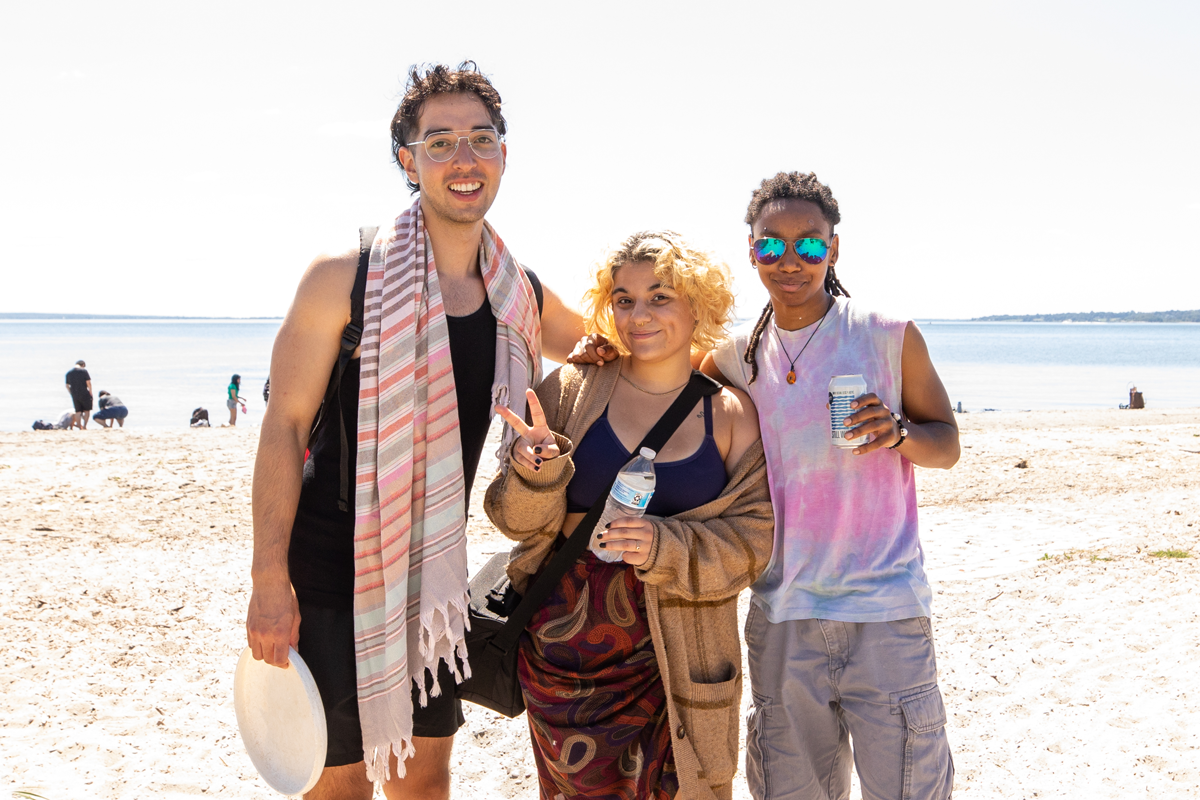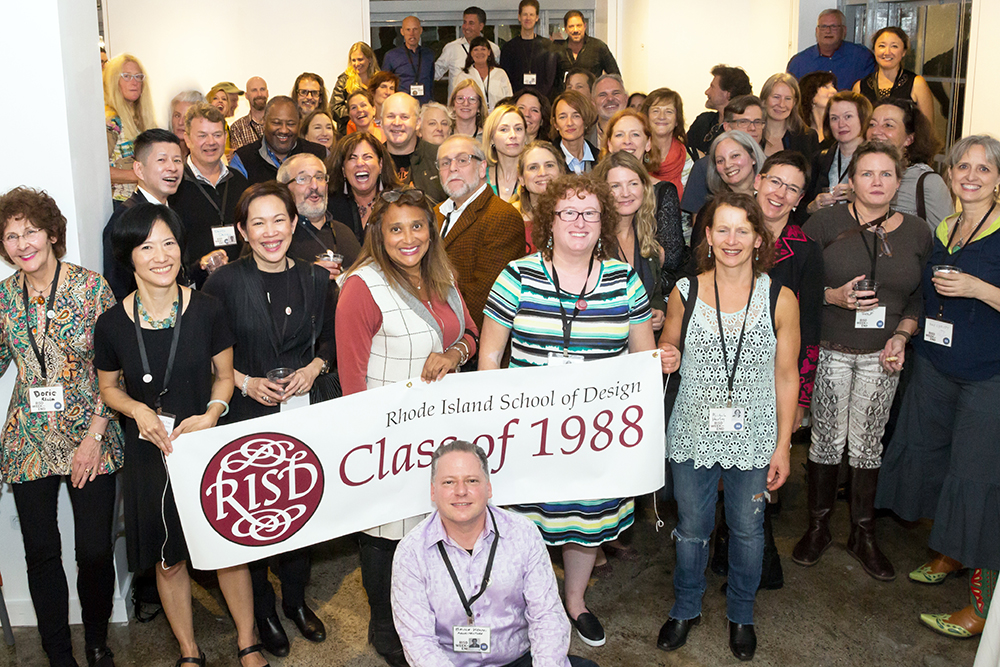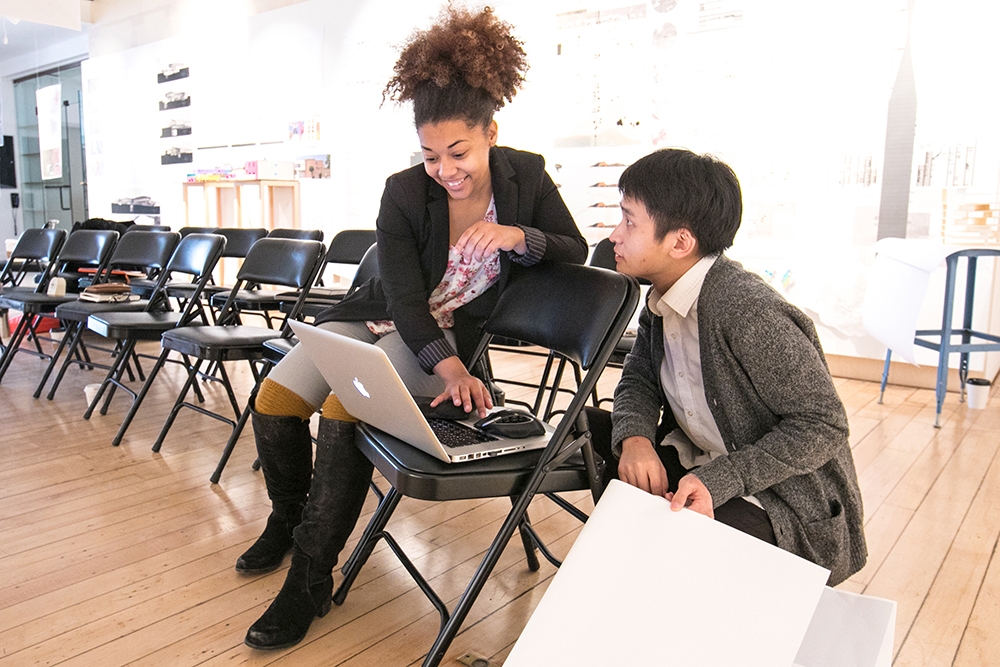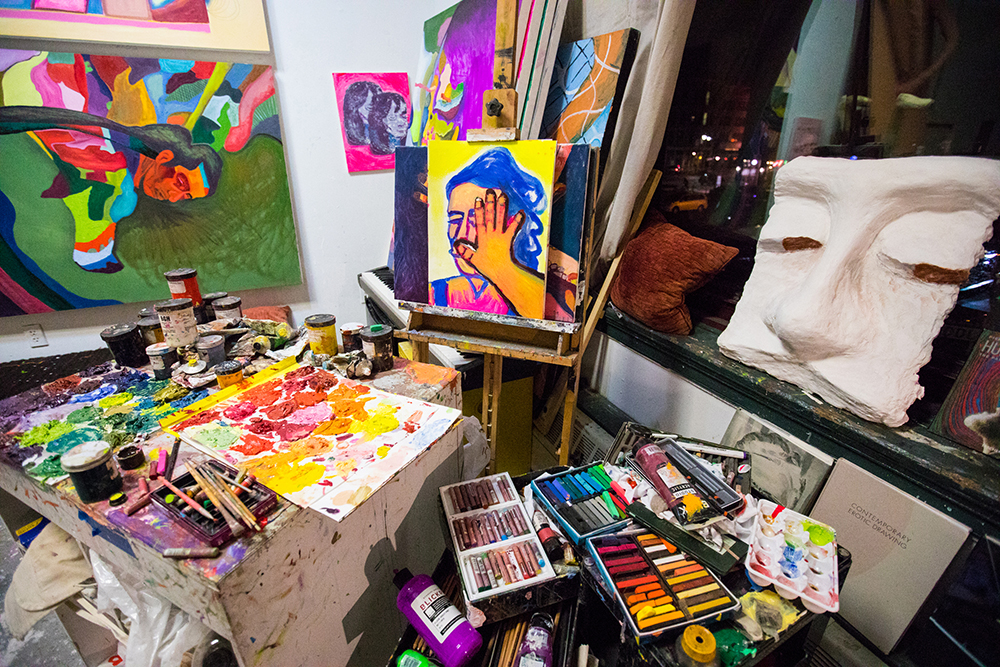
POP Art
A gift from the estate of an alumna to the RISD Fund provides support for an orientation program for first-generation college students.
As part of this year’s First-Generation to College Pre-Orientation Program, known as FGC POP or POP, first-generation college students worked with wire in the Edna W. Lawrence Nature Lab, building things inspired by the objects around them. Shiloh Lemaire 27 says, “It was really entertaining! We would teach each other different methods and our professor and TAs were walking around telling us we could be silly and experiment. It was very comfort- able and it was fun to work together even as we were making our own projects.”
This is the type of communal, supportive experience that POP was designed to facilitate. Jonathan Sylvia P 26 and Academic Studio Advisor for Experimental and Foundation Studies; Tony Johnson 93 SC and Associate Dean, Student Social Equity & Inclusion and Richard Song, Director Intercultural Student Engagement (ISE) explain that while RISD had exist- ing support for first-generation college students, it wasn’t enough.
“Faculty in Experimental and Foundation Studies saw a pattern of first-gen students struggling and leaving school at the end of their first year, if they made it that far. So we partnered with Intercultural Student Engagement to see how we could get ahead of the problem,” Sylvia says.
Seed funding from a planned gift allowed faculty and staff to design POP without worrying about placing an additional financial burden on students. Thanks to Rachel Doane 64 LA, who designated RISD as a beneficiary of her estate, students from the United States who identify themselves as first- generation students have attended the two-and a-half week program free of charge since it was launched in 2021.
During the weeks before the academic year officially starts, students become acclimated to life at RISD, form a network of peers, take courses and learn about things that may be unfamiliar to them, such as how critiques are structured.
“I like to use the analogy of a train,” Johnson says. “We saw students handling their first year at college like they were running for a train that was already moving. POP shows them how to get to the station, observe the train, analyze it and then board, now with knowledge and new perspectives.”
Sylvia points out that the students who participate in POP may be unfamiliar with RISD’s academic expectations even as they arrive with a deep commit- ment to their practice. “POP does not operate on a deficit model,” he says. “These students are advanced in many ways. To use Tony’s analogy, I bet they can drive the train! They just may not know it yet.”
Julio Solano 27 and Lemaire are just two of the 2023 POP participants who demonstrate this longstanding commitment to art and design. Lemaire, from Providence, participated in RISD’s Project Open Door, a community arts program for local high school students. Solano grew up in Guatemala until he was 15, when he moved to New Jersey to live with extended family and pursue his artistic interests. By the time he was considering college, he was on his own.
“I didn’t have anyone to tell me how to navigate through college or even apply. So I did all of that by myself. When I got into RISD I was very nervous because I didn’t know anything about college,” Solano says.
Lemaire echoes his concerns, saying “I went to public high school. I knew that when I got to college, there would be things that I didn’t know and things that I wouldn’t be prepared for. I knew that my sister didn’t know; I knew my mom didn’t really have answers either.”
Enter POP.
Solano says, “When I got to RISD for the program, it changed what I thought college was going to be. I found a new space where I could be myself and people who maybe don’t have my same background, but have struggled with things I’ve struggled with. I have this new community and I know what resources are out there to help me navigate RISD.”
Currently, POP hosts about 30 students per summer. Sylvia, Song and Johnson view that as a strong start, but say that POP can and must grow in order to meet the needs of all first-generation students, including international students.
“We’ve seen the numbers of students who are apply- ing to RISD from a first-gen reality increase. We’ve seen the number of those students who’ve been admitted increase,” says Johnson. “It’s a total infra- structure challenge that limits the number of students we can serve.”
While the funding from Doane’s estate helped to establish the program, additional investment would create more opportunities, including the possibility of making the courses credit-bearing for participants.
Song says, “As director of ISE, I want to get to a place where we don’t have to turn interested students away. That comes with some challenges in terms of dollars. As much as we would like to include all first- gen students into our program, we just don’t have that capacity yet.”
To learn more about how you can support first- generation students, contact Carolyn Drew, senior executive director, Major + Planned Gifts, at cdrew@risd.edu.
Image credit: Jo Sittenfeld MFA 08 PH



